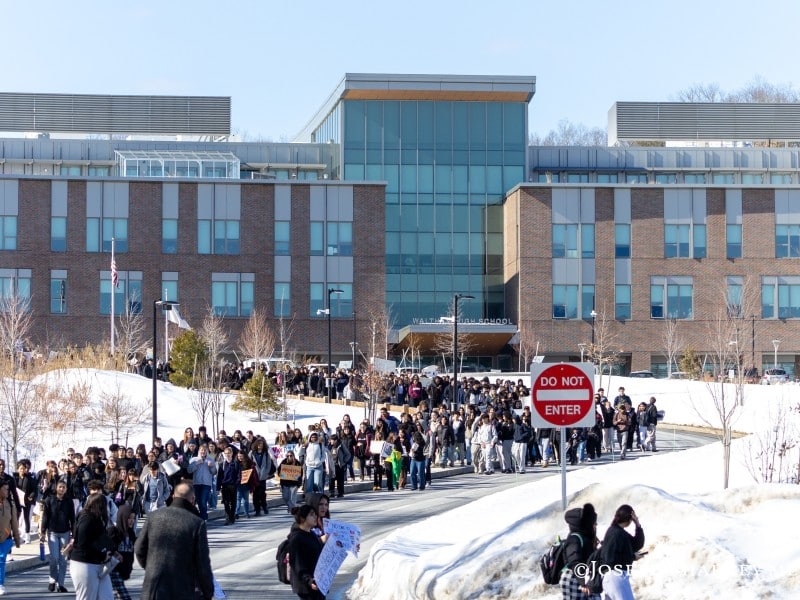Despite recent cuts, Brandeis looks forward to ‘more sustainable future’
JULIE M. COHEN
Waltham Times Contributing Writer

Following layoffs and the cutting of its string quartet from its music faculty earlier this year, Brandeis University said it is working toward a “more sustainable future.”
“We believe that difficult decisions made now will put Brandeis on a more solid foundation. Brandeis is working toward a more sustainable financial future, enabling the institution to continue to thrive as a center for academic excellence,” said Julie Jette, assistant vice president of marketing and communications at the 76-year-old school.
Brandeis eliminated approximately 60 full- or part-time administrative staff positions earlier this year, with layoffs having started in July, Jette said.
In September, the university’s president, Ron Liebowitz, announced his resignation after an earlier no-confidence vote by the faculty.
Then in October the university announced it was not renewing contracts for the venerable Lydian String Quartet.
Jette said the university is “not currently anticipating further layoffs.”
Following those tumultuous months, the university introduced a new initiative that significantly increases the amount of financial assistance it is offering students: Brandeis announced the program, called Brandeis Commitment, in November.
Under this program, which starts with the class entering in fall 2025, students from “families with total incomes of less than $75,000 annually and typical assets will receive total grants and scholarships that cover their full tuition.
Students from families earning less than $200,000 a year and typical assets will receive grants and scholarships totalling 50% of their tuition.”
Impact on host communities
Brandeis has numerous ties to Waltham that extend past its South Street campus boundaries, which makes news of the cuts noteworthy for the city.
Disruptions, including financial woes, at institutions of higher learning can impact their host communities and the surrounding area, said Lynn Pasquerella, president of the American Association of Colleges and Universities (AAC&U).
“[Schools] are extraordinary economic drivers for communities in which they’re located,” said Pasquerella, adding that the relationships between the institutions and host communities are very important.
Pasquerella said any time an institution is struggling, “it’s really important to have transparency,” especially with host communities, since instability and turnover “takes a toll.”
“Any layoffs in the city are hard,” added Molyna S. Richards, executive director of the Waltham Chamber of Commerce. “As an economic development partner, we would like to see employment opportunities increase rather than decrease. But we understand that changes are inevitable.”
Richards praised several of the school’s initiatives, including its students’ involvement in Waltham nonprofits and the Brandeis Commitment.
Neither Mayor Jeannette A. McCarthy nor City Council President John J. McLaughlin responded to requests for comment on the recent Brandeis news or how the university’s decisions might impact the city.
National trends in higher education
The staffing cuts, the elimination of the quartet and the no-confidence vote at Brandeis come at a time when many higher-education institutions are struggling, leading some to trim program offerings, merge with others or close altogether.
Pasquerella said small liberal arts institutions are often competing for the same pool of students paying full tuition. This is compounded by the fact that it’s now harder for international students, who usually pay full tuition, to attend U.S. colleges and universities.
There is also a demographic decline in college-age students in the United States, Pasquerella said. At the same time there is more skepticism now about the usefulness of a college degree when compared with the financial burden of student loans.
Thanks for reading! We are a reader-supported nonprofit newspaper. If you value our reporting, please support The Waltham Times through a tax-deductible gift.



